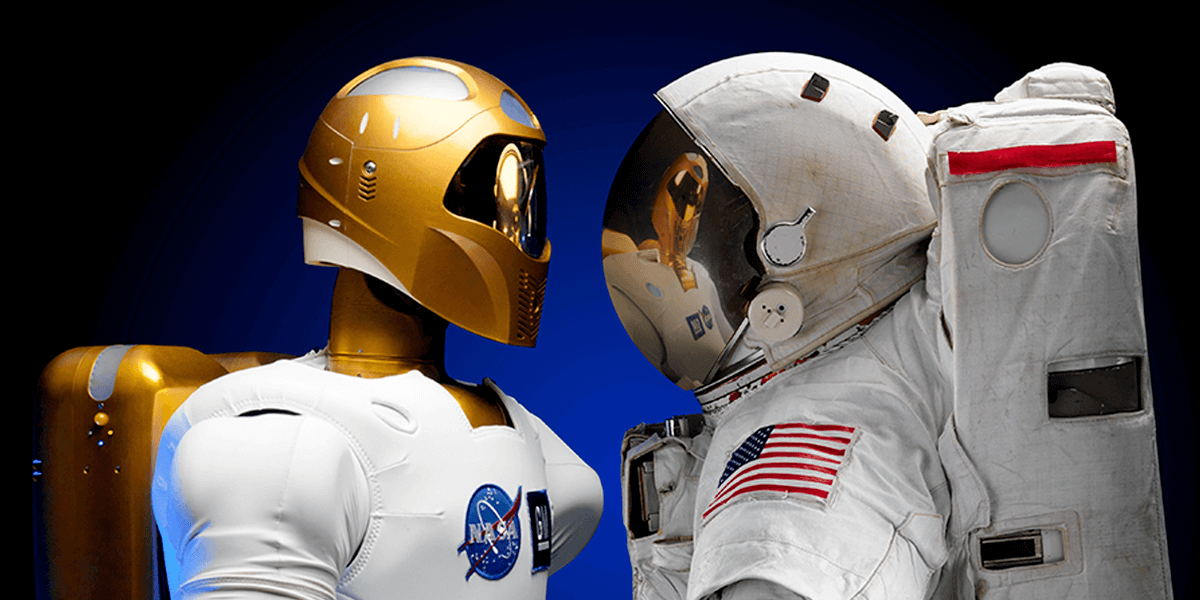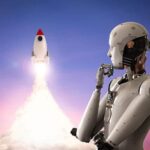Unveiling the Future: AI’s Role in Revolutionizing Space Exploration
In the vast expanse of space, humanity’s quest for knowledge and discovery knows no bounds. With the advent of artificial intelligence (AI), our ability to explore and understand the cosmos has reached new heights. From autonomous rovers traversing distant planets to satellite imaging of celestial bodies and the dream of interplanetary travel, AI is reshaping the landscape of space exploration. This blog delves into the exciting frontier of AI-powered space exploration, exploring its potential, challenges, and the transformative impact it holds for humanity’s journey beyond Earth.
Unveiling the Potential of Natural Language Generation in Space Exploration:
Natural Language Generation (NLG) is poised to revolutionize space exploration by enhancing communication and analysis within the scientific community. NLG algorithms can interpret complex data collected from space missions, satellite imaging, and rover exploration and generate comprehensive reports and summaries in human-readable language. These reports can provide valuable insights into planetary geology, atmospheric conditions, and the potential for habitability on other celestial bodies. Furthermore, NLG-powered communication systems can facilitate seamless collaboration among scientists, engineers, and mission controllers, ensuring that critical information is effectively communicated and acted upon in real-time. By harnessing NLG technology, space agencies can streamline decision-making processes, accelerate scientific discoveries, and advance humanity’s understanding of the cosmos.
Unlocking the Potential of App Development Expertise:
In the realm of space exploration, hire app developer is crucial for creating innovative applications and tools that support mission planning, data analysis, and spacecraft operation. These developers possess the technical expertise to design and implement custom software solutions tailored to the unique challenges of space missions. From developing mobile applications for remote monitoring of spacecraft systems to creating data visualization tools for analyzing satellite imagery, app developers play a vital role in advancing space exploration efforts. Their proficiency in programming languages, user interface design, and software engineering methodologies enables them to develop intuitive and reliable applications that enhance the efficiency and effectiveness of space missions. By hiring talented app developers, space agencies and aerospace companies can leverage cutting-edge technology to overcome complex challenges and unlock new frontiers in space exploration.
Elevating Space Exploration with Data Annotation Specialists:
In the realm of space exploration, data annotation specialist are instrumental in processing and analyzing vast amounts of data collected from satellites, rovers, and other space probes. These specialists possess the expertise to annotate and label images, videos, and sensor data, providing valuable insights for scientific research and mission planning. By meticulously annotating data sets with information such as object identification, terrain features, and atmospheric conditions, data annotation specialists enable scientists and engineers to extract meaningful patterns and trends from raw data. Their attention to detail and domain-specific knowledge help ensure the accuracy and reliability of data used in space exploration missions, contributing to discoveries about distant planets, celestial phenomena, and the broader universe. With their specialized skills, data annotation specialists play a crucial role in advancing our understanding of space and driving future exploration endeavors.
Autonomous Rovers:
One of the most captivating applications of AI in space exploration is the development of autonomous rovers. These robotic explorers, equipped with sophisticated AI algorithms, are tasked with navigating the challenging terrain of other planets and moons, conducting scientific experiments, and gathering vital data. AI enables these rovers to make real-time decisions, adapt to unforeseen obstacles, and prioritize scientific objectives, all without direct human intervention. With AI at the helm, autonomous rovers like NASA’s Curiosity and Perseverance are unlocking the mysteries of Mars, paving the way for future manned missions and the eventual colonization of other celestial bodies.
Satellite Imaging:
Another key area where AI is revolutionizing space exploration is in satellite imaging and analysis. Satellites equipped with AI-powered imaging systems can capture high-resolution images of distant planets, moons, and asteroids with unparalleled clarity and detail. These images provide scientists and researchers with invaluable insights into planetary geology, atmospheric conditions, and the presence of water or other resources. AI algorithms can process vast amounts of image data, identify significant features, and even detect subtle changes over time, such as volcanic activity or shifting weather patterns. By harnessing AI for satellite imaging, astronomers and planetary scientists can unravel the mysteries of the cosmos and expand our understanding of the universe.
Interplanetary Travel:
The dream of interplanetary travel has long captivated the imagination of humanity, and AI is playing a crucial role in turning this dream into reality. From autonomous navigation systems for spacecraft to AI-driven trajectory optimization and resource management, AI technologies are instrumental in overcoming the challenges of long-duration space travel. AI-powered spacecraft can autonomously adjust their course, monitor onboard systems, and respond to unforeseen events, ensuring the safety and success of interplanetary missions. Furthermore, AI can enable autonomous space habitats and resource utilization systems, laying the groundwork for sustainable human presence beyond Earth’s orbit.
Challenges and Considerations:
While the potential of AI in space exploration is immense, it also presents significant challenges and considerations. Ensuring the reliability and robustness of AI systems in the harsh environment of space is paramount, as any failure could jeopardize expensive missions and valuable scientific data. Additionally, ethical considerations surrounding AI decision-making in space exploration, such as the prioritization of scientific objectives over potential biological or cultural significance, must be carefully addressed. Furthermore, the development of AI technologies for space exploration requires close collaboration between scientists, engineers, and policymakers to ensure that ethical, legal, and safety concerns are adequately addressed.
Conclusion:
As we gaze towards the stars and contemplate our place in the cosmos, AI stands as a powerful ally in humanity’s quest for knowledge and exploration. From autonomous rovers roaming distant worlds to satellite imaging of celestial bodies and the realization of interplanetary travel, AI is reshaping the future of space exploration. By harnessing the potential of AI technologies, we can unlock the mysteries of the universe, expand our understanding of the cosmos, and pave the way for a future where humanity’s reach extends far beyond the confines of our home planet.






